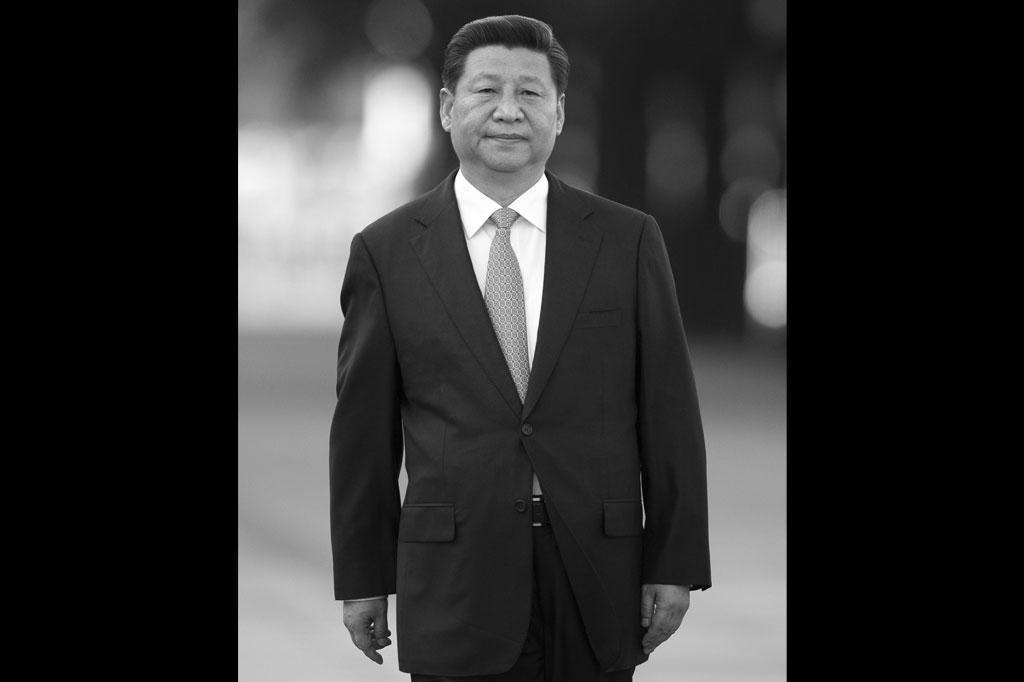In a recent speech, Chinese Communist Party leader Xi Jinping discussed “constitutionalism,” but one would never know it from the official accounts. The liberal-leaning financial news website Caixin upstaged the state-run media by running the complete text of Xi’s speech, with the expurgated parts in a grey box at the top.
What this all means is open to debate.
In China, where apparently minor changes in the regime’s propaganda can signal important messages from the leadership, this set of circumstances raised some eyebrows.
The rule of law and constitutionalism are politically fraught concepts in China. One possible interpretation for their absence in any of the state reportage is that Liu Yunshan, the head of propaganda and ideology, saw to it that these parts were cut. Liu’s motive for doing so may have to do with the power struggle currently rocking the Chinese Communist Party (CCP).
Liu Yunshan is a member of the Politburo Standing Committee, the Party’s nerve center, and more importantly is a political protégé of Xi Jinping’s now arch rival, former Party leader Jiang Zemin. Jiang Zemin has a penchant for stacking the leadership with those who owe him something—as witnessed during the leadership transitions of 2002 and 2007. He and his cronies are also major targets of Xi Jinping’s current political purge.
As one of three officials (out of seven) in the Standing Committee whose allegiance can be traced to Jiang, Liu Yunshan could be serving his old master in censoring Xi’s writings, rather than his putative new one.
Another potential scenario is that Xi Jinping is deliberately using the business magazine Caixin to publish messages that are inconvenient to propagate through official channels. Caixin has been an ally of the anti-corruption campaign, publishing exclusive, inside details of the takedowns of officials over the past 18 months, and Xi is known to have been friends with Caixin’s founder, Hu Shuli.
The speech in question is titled “Address Celebrating the 60th Anniversary of the Establishment of the National People’s Congress.”
It is a fairly standard political discussion for a Chinese leader, reciting the need for the cadre corps to “have firm faith in the path of socialism with Chinese characteristics, faith in the theory, and faith in the system.”
Party members, moreover, were instructed to “struggle to realize the China dream of rejuvenating the Chinese nation.” The speech contains a summary of modern Chinese history from the perspective of the Communist Party, and concludes that the CCP is—surprise, surprise—best suited to leading China into the future.

Xinhua, the official mouthpiece of the People’s Republic of China, contains both a report about that speech and an “analysis” of it. Analyses carried by official media are often a way for Party propagandists to present an apparently third party interpretation of recent policy announcements and explain them further for readers.
But Xinhua did not carry the speech itself, as spoken by Xi Jinping. The organization did not respond to a question by email. Quite often the full text of speeches by Xi Jinping and other Chinese leaders is available on Xinhua or People’s Daily, the mouthpiece of the Party’s Central Committee.
Caixin, though, carried the speech in its entirety, and it included several key, sensitive political phrases, that did not appear in the Xinhua summary or subsequent reporting. Caixin did not respond to an enquiry asking where it obtained the full text of the speech.
The phrases that Caixin included and official channels did not were that the Party must “use the constitution to rule the country,” and that for rule of law to be established in China, “power must be exercised in accordance with the constitution.”

Evidently having sensed the importance of these claims, Caixin put both of them in its precis of the speech, in a grey box at the top, lest readers otherwise miss out. (The two phrases were nestled about a third of the way through the speech, in the middle of a paragraph about the need to perfect the institution of the National People’s Congress.)
The significance of these phrases stems from the fact that constitutionalism is a glaring void in the Chinese regime. Constitutionalism is predicated on the law being the foundation of order and power, rather than the will of a self-appointed elite, i.e., the Chinese Communist Party. Xi Jinping has made other similar comments—for example that “power should be restricted by the cage of regulation.”
Constitutionalism has lately been a regular subject of discussion among Party ideologues, reformers, and intellectuals in general in China, but these ideas run in deep conflict with the ideological DNA of the Party.
The CCP is a Marxist-Leninist revolutionary organization, an “alliance of workers and peasants,” as the current Chinese constitution puts it. The Party is the tool of “the people’s democratic dictatorship” and is therefore implicitly the source of order and power—and forever above the law, or constitution.
While political meddling by Liu Yunshan is a potential explanation for the absence of the speech, and this language, from the official press, Xi Jinping’s own propaganda imperatives may also be behind it.
Qian Gang, a scholar of Chinese media, pointed out in an editorial for the Chinese edition of the Wall Street Journal that the recent book publication of Xi Jinping’s collected speeches silently omitted several crucial speeches that Xi gave. Both of them related to constitutionalism.





